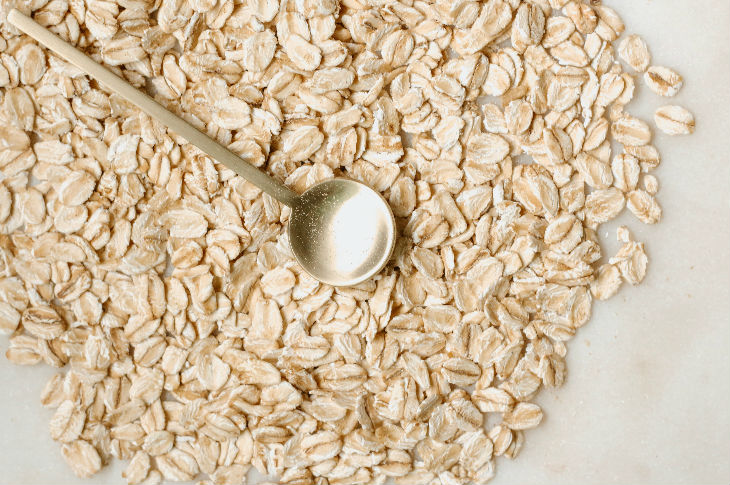
There’s no doubt that oat milk is having a bit of a moment right now, popping up everywhere from the refrigerated cases in supermarkets to coffee shop menus. And once you taste how creamy it is in your morning cup of joe or afternoon smoothie, you can see where all the buzz is coming from. But what is it exactly and is it more nutritious than cow’s milk or other dairy alternatives? Those are questions Vandana Sheth, RD, a nutritionist based in Los Angeles, recently weighed in on.
Like many dairy-free milks, oat milk is made by combining a plant (in this case, obviously, oats) and water, then straining out the liquid. In fact, it’s super simple to make yourself, according to Sheth. Just add one cup of rolled oats and three cups of water to a high-powered blender and let it run for a minute. Then just strain through a cheesecloth and, voilà, you have oat milk. The carbohydrates from the oats are why the resulting liquid is so creamy. And it’s customizable: “If you want a little flavor or sweetness, add a few drops of vanilla or some dates into the blender with the oats,” says Sheth.
One reason it’s so popular right now is that it can be pretty easy on the digestive system. “Oat milk is naturally lactose- and dairy-free, which is good if you’re lactose intolerant, allergic to dairy, or just prefer not to eat animal products,” says Sheth. “It’s also a good alternative to other milk alternatives like almond or soy milk if you are allergic.”
That said, is it a healthy addition to your next latte? “Because you are straining the oats from the liquid, it doesn’t have as much fiber as eating a bowl of oatmeal does,” says Sheth. “But there is still some good fiber in there (2 grams in a cup).” And as dairy milk doesn’t deliver any fiber, this is an added bonus.
The downside to switching to oat milk is that it provides very little protein: 2 grams per cup compared to almost 9 grams in a cup of cow’s milk and about 6 grams in a cup of soy milk. Oat milk is also missing the essential nutrients cow’s milk provides like calcium, but if you buy your oat milk from a store instead of making it yourself, it’s often fortified. “Packaged oat milk has calcium, vitamin D, vitamin A, and some B vitamins added to them,” says Sheth.
Most packaged kinds of oat milk have about 100 calories per cup, which is more than unsweetened almond milk but about the same as one percent milk. Just make sure to look at the label—the calories can go higher if you get oat milk with added sugars and flavoring, like chocolate or vanilla.
This information is for educational purposes only and is not intended as a substitute for medical diagnosis or treatment. You should not use this information to diagnose or treat a health problem or condition. Always check with your doctor before changing your diet, altering your sleep habits, taking supplements, or starting a new fitness routine.

If you have questions about a Fitbit tracker, product availability, or the status of your order, contact our Support Team or search the Fitbit Community for answers.
Please note: Comments are moderated and may not appear immediately after submission.